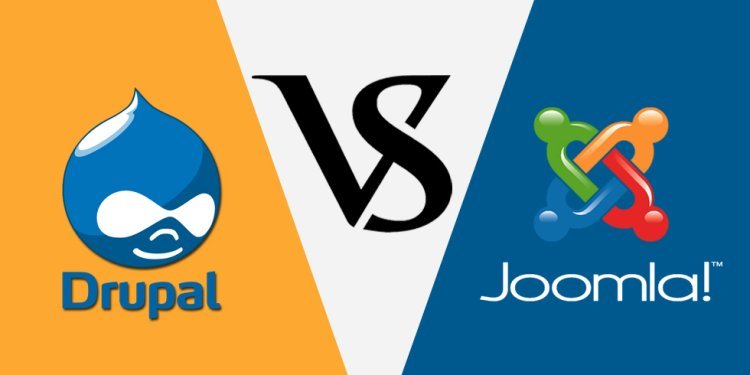Drupal vs Joomla: Choosing the Right CMS for Your Development Needs
In this blog, we'll compare Drupal and Joomla, focusing on their key features, development capabilities, and use cases to help you choose the right CMS for your needs.

When it comes to content management systems (CMS), Drupal and Joomla are two popular choices that offer robust features and functionalities for building websites and web applications. Both platforms have their strengths and weaknesses, making it essential to understand their differences to make an informed decision for your development project. In this blog, we'll compare Drupal and Joomla, focusing on their key features, development capabilities, and use cases to help you choose the right CMS for your needs.
Introduction to Drupal and Joomla
Drupal: Drupal is a powerful open-source CMS known for its flexibility, scalability, and extensibility. It is built on PHP and offers a modular architecture that allows developers to create highly customized websites and applications. Drupal is favored by developers for its strong community support, robust security features, and flexibility to handle complex projects.
Joomla: Joomla is another popular open-source CMS that is widely used for building websites, blogs, and online stores. It is also built on PHP and offers a user-friendly interface, making it suitable for beginners and experienced developers alike. Joomla is known for its ease of use, extensive customization options, and vibrant community of developers and users.
Drupal Development: Key Features and Benefits
- Modular Architecture: Drupal's modular architecture allows developers to create custom modules and themes to extend its functionality and meet specific project requirements.
- Scalability: Drupal is highly scalable and can handle large volumes of content and traffic, making it suitable for enterprise-level websites and applications.
- Security: Drupal has a strong focus on security, with regular updates and security patches to protect against vulnerabilities and attacks.
- Community Support: Drupal has a large and active community of developers, contributors, and users who provide support, documentation, and resources for Drupal development projects.
Joomla Development: Key Features and Benefits
- User-Friendly Interface: Joomla offers a user-friendly interface that makes it easy for beginners to create and manage websites without extensive technical knowledge.
- Extensions and Templates: Joomla has a vast library of extensions and templates that allow developers to add new features and customize the appearance of their websites quickly.
- Multilingual Support: Joomla provides built-in support for multilingual websites, allowing developers to create websites in multiple languages with ease.
- Community Support: Joomla has a thriving community of developers and users who contribute to the platform's development, provide support, and share resources and knowledge.
Drupal vs Joomla: A Comparison
1. Flexibility and Customization:
- Drupal: Drupal offers greater flexibility and customization options, allowing developers to create highly tailored websites and applications with its modular architecture.
- Joomla: Joomla also provides customization options, but it may be less flexible than Drupal for complex projects requiring extensive customization.
2. Ease of Use:
- Drupal: Drupal may have a steeper learning curve for beginners due to its more complex architecture and terminology.
- Joomla: Joomla is known for its ease of use and intuitive interface, making it a popular choice for users with limited technical expertise.
3. Security:
- Drupal: Drupal has a strong focus on security, with regular updates and security patches to address vulnerabilities promptly.
- Joomla: Joomla also prioritizes security, but its extension ecosystem may pose security risks if not properly maintained or vetted.
4. Community and Support:
- Drupal: Drupal has a large and active community of developers, contributors, and users who provide support, documentation, and resources for Drupal development projects.
- Joomla: Joomla also has a vibrant community of developers and users who contribute to the platform's development and provide support through forums, documentation, and resources.
Conclusion
In conclusion, both Drupal and Joomla are powerful CMS platforms with their strengths and weaknesses. Drupal excels in flexibility, scalability, and security, making it suitable for complex and enterprise-level projects requiring extensive customization. Joomla, on the other hand, offers ease of use, a user-friendly interface, and a vast library of extensions, making it ideal for beginners and small to medium-sized websites.
Ultimately, the choice between Drupal and Joomla depends on factors such as project requirements, technical expertise, scalability needs, and long-term goals. Whether you opt for Drupal development or Joomla development, both platforms offer robust solutions for creating dynamic and engaging websites and applications to meet your business needs.
What's Your Reaction?












![Wireless Connectivity Software Market Size, Share | Statistics [2032]](https://handyclassified.com/uploads/images/202404/image_100x75_661f3be896033.jpg)



